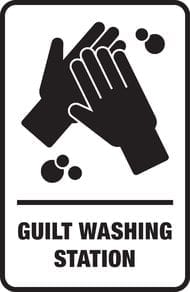
New ideas about how to distribute content while being user-friendly and setting low fees are the way forward.
San Francisco, CA – In an op-ed published by Al Jazeera on February 18, Princeton ethicist Peter Singer argued that the “case for enforcing copyright laws was strengthened” by the recent seizure of popular file-sharing site Megaupload‘s domain name, along with the arrest of its owner Kim Dotcom. If copyright law is not vigorously enforced, he says, the economy will suffer, and authors, musicians and directors may soon not have a reason to create content anymore.
Contrary to Prof Singer’s claims, the Megaupload case actually shows the dangers of draconian enforcement of copyright laws, which have recently been enforced at the expense of both free speech and US businesses. And despite misleading rhetoric from organisations such as the MPAA and RIAA, both creativity and the entertainment industry itself are thriving.
Inside Story – SOPA: Freedom or profits?
First, let’s get one thing straight: the US not only enforces copyright laws already, it often does so overzealously in ways that hurt free speech and innocent users. We can see this in other news from just the past few months. The US government has been seizing thousands of other websites in the name of copyright, often times with little or no due process or court oversight. One such seizure last year led to innocent 84,000 domain names getting censored by mistake.
Just last week, the authorities seized the domain of a successful start up called Jotform – despite its robust copyright policy – leaving their millions of customers with no idea how to access their site. A couple of days later, the US returned the domain with no explanation. Recently, the US even began extradition procedures against a 23 year-old college student in Britain, not for providing copyrighted content, but for merely linking to other sites that do so.
Even in Megaupload’s case, there is the potential for massive collateral damage. Putting aside the guilt or innocence of Megaupload’s owners, we know that many there are many legitimate, innocent users of Megaupload that cannot access their files. Unfortunately, the case may also put the entire cloud computing industry at risk, including popular sites such as Dropbox. In fact, the US government’s draconian stance on copyright enforcement in general may literally be scaring internet companies into moving out of the country.
The reality is that Congress has passed a staggering 15 anti-piracy laws in the past 30 years. Congress extended copyright terms another dozen times – including taking works hundreds of years old and already in the public domain and re-copyrighting them.
But is piracy really that big of a problem? Prof Singer uncritically cites the claim by content industries that “violations of copyright on the internet cost 100,000 jobs in the US alone”. While he did not link to a study providing those numbers, the content companies’ “estimates” of job loss numbers due to piracy have proven again and again and again to be grossly exaggerated. The Government Accountability Office (GAO) itself told the rest of the US government to stop citing the content industries’ studies in 2010 because they “cannot be substantiated or traced back to an underlying data source or methodology”. Despite this rebuke, the industry is still releasing studies without letting anyone look at their methodology or underlying data.
Alternatives
Prof Singer goes on to say that, without more copyright enforcement, “most creative people will need to earn a living doing something else”. Here, the numbers don’t back him up either. A study just released by CCIA and Engine Advocacy shows the content industry has thrived since the advent of file sharing. In the past decade the industry increased 50 per cent and people are spending more money, not less, on entertainment. The non-partisan Congressional Research Service came to similar conclusions. Another study showed that exceptions to copyright law – most notably fair use – are actually worth much more to the economy than copyright itself.
Read more . . .
Bookmark this page for “latest on copyright” and check back regularly as these articles update on a very frequent basis. The view is set to “news”. Try clicking on “video” and “2” for more articles.








